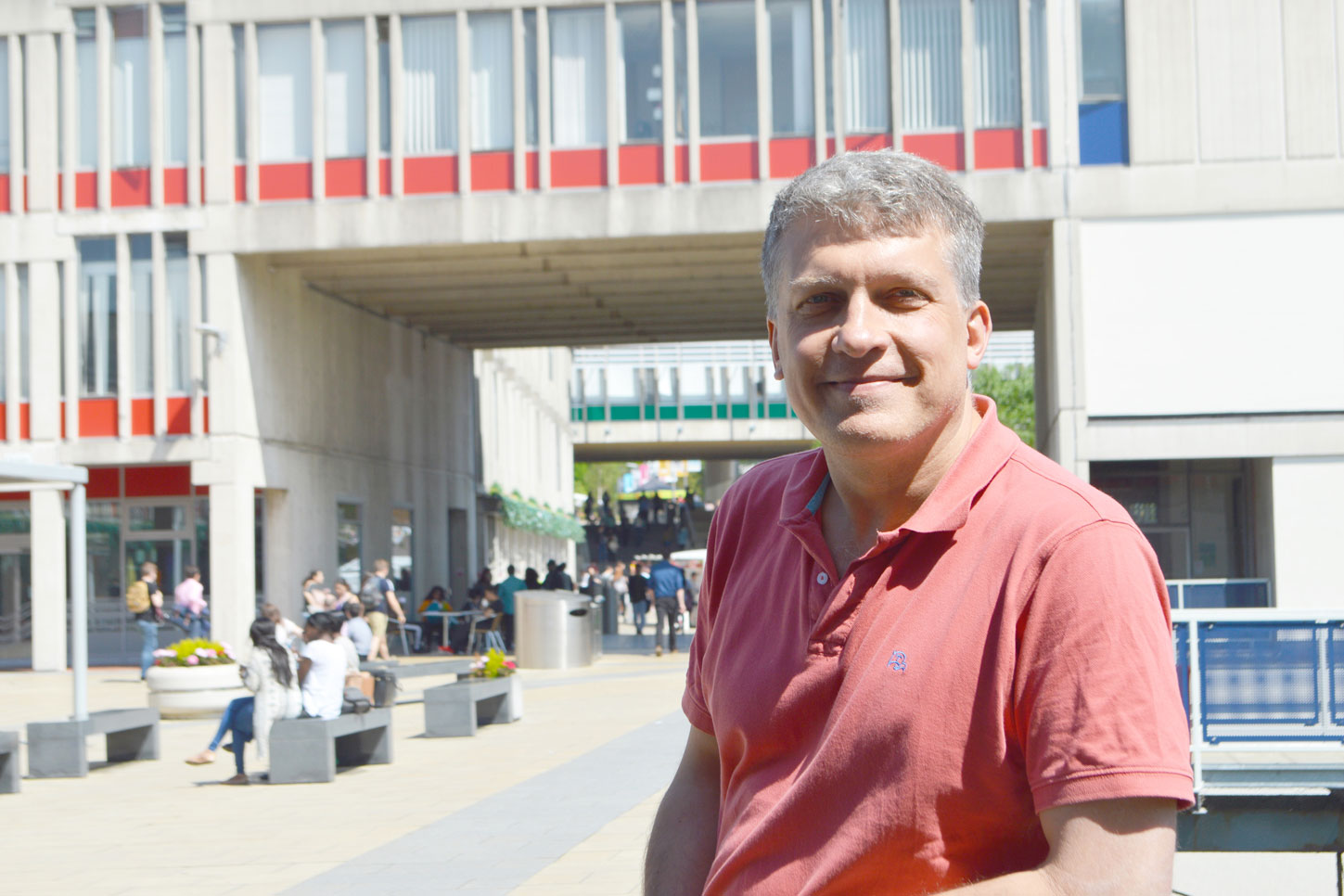
Professor Massimo Poesio.
Online games are to be used in a major research project at the University of Essex to better understand how much people agree and disagree when using language.
The €2.5 million ERC (European Research Council) Advanced Grant was awarded to Professor Massimo Poesio from the School of Computer Science and Electronic Engineering (CSEE), who is renowned as a leading academic in the area of computational linguistics - which involves how computers process and analyse language.
The award also highlights Essex's long history of excellence in computational linguistics, gaming and artificial intelligence (AI).
The five-year project will involve using a web-based game to collect huge amounts of data that can then be analysed to help us understand certain ambiguities around language and develop computer models that can handle them.
Lovers of literature, language and grammar have already been playing the University’s Phrase Detectives web-based game, where players can make annotations to highlight relationships between words and phrases in online documents.
This new research project will develop Phrase Detectives further, with the millions of pieces of data collected helping computers better understand the complexities of how humans speak and understand phrases.
Professor Poesio explained: “We take the complexity of human language for granted, but for computers there are still many grey areas. It is a real challenge to generate enough data to help computers better understand these complexities and we hope this project will lead to a greater understanding of the human language for computers.”
The research will particularly focus on ambiguity in anaphora - the use of a word such as a pronoun referring back to a word used earlier in a text or conversation. Dr Jon Chamberlain, one of the researchers on the Phrase Detectives project, explained: “Human language is not an unconnected series of words, phrases and sentences but a series of people, objects and ideas that refer to each other in different ways. The complexity of language makes it sound ‘natural’ to a reader but it can be difficult to define the rules that allow us to understand it.”
The new game will involve players annotating a wide range of copyright-free material including Brothers Grimm fairy tales, Victorian texts and Wikipedia. To develop the game Professor Poesio will be collaborating with Professor Richard Bartle and other colleagues in the Intelligent Games and Game Intelligence Programme (IGGI), also based at Essex.
Some of Europe’s leading computational linguists studied at Essex, many of whom will be returning to the Colchester Campus in July for a workshop celebrating 40 years of computational linguistics at Essex.
This project was one of only 277 to secure an ERC Advanced Grant out of nearly 2,000 applications. The funding, worth in total €647 million, is awarded to world leading researchers to enable them to pursue their most promising ideas and carry out frontier research with potentially ground-breaking impact on science and society beyond.
Announcing the grants, Carlos Moedas, European Commissioner for Research, Science and Innovation, said: "Through EU funding, the European Research Council is enabling the best minds in the world to create a better future for us all. These talented researchers are an integral part of what keeps us globally competitive. Their work will lead to new knowledge, it will fuel innovation and it can bring about market-creating innovation − generating employment opportunities and economic growth for Europe.”
Ends
Note to Editors
For more information please contact the University of Essex Communications Office on 01206 872400 or email comms@essex.ac.uk.